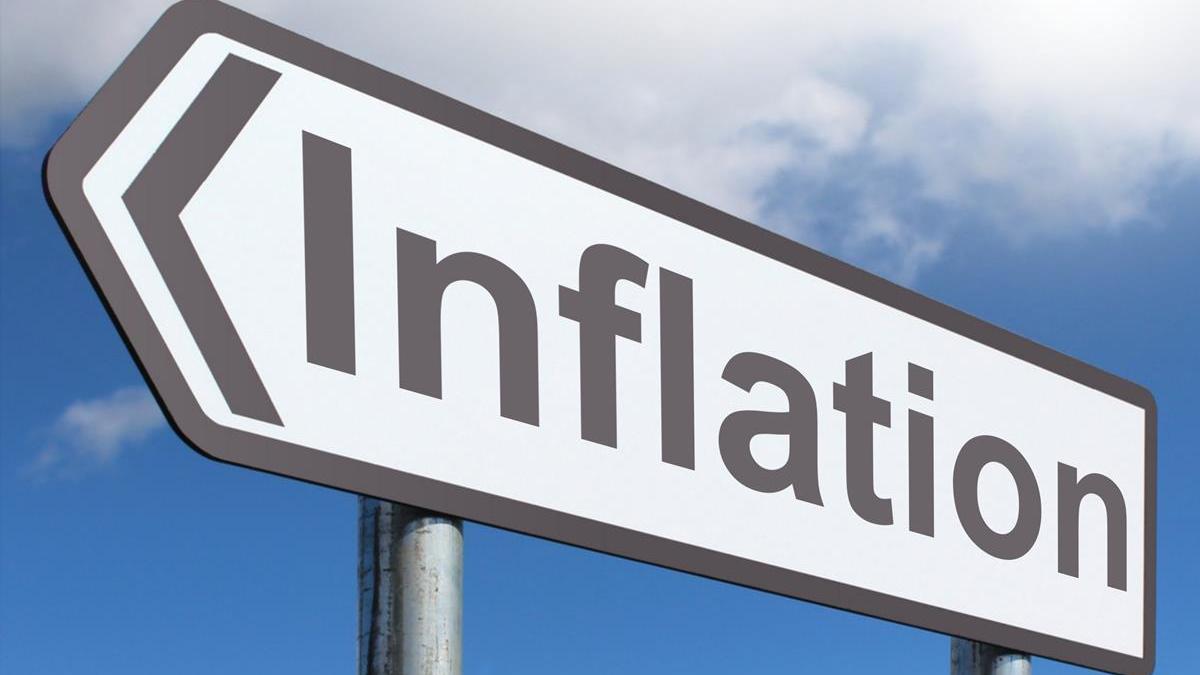
Double-digit inflation is taking Greece years back, in the now-distant 1994, which rising to levels above 10%. After 28 years, consumers in Greece are feeling the weight of steeply rising prices not only in electricity bills but also in basic food items. The new, recent package of interventions of 3.2 billion euros in energy is expected to keep inflation around 5%, this year.
Today, ELSTAT data for April are expected, which will take the price index to over 10%. According to official Eurostat data released last week, the harmonized consumer price index climbed to 9.4% against a performance of -1.1% in the corresponding month of 2021. In March 2022 the corresponding index shaped up at 8 %, while the consumer price index of ELSTAT was set at 8.9%.
Inflation at record levels
The sharp rise in energy prices is burning away incomes and the economic climate is being shaped by inflation at record levels. After the start of the Russian war in Ukraine, the estimates of the Ministry of Finance were revised for the worse for this year, raising the average inflation to the level of 5.6% – from 1% which was the initial forecast. The analyses show scenarios for an annual increase of even 11%, while a “black record” is striking at consumers and deflating the economic climate, with the drop being registered by the market and in indices. Inflation started to bare its teeth in January when it jumped to 6.2%, at a high level since 1997, recording a historical level from the time Greece adopted the euro. In December 2021 it rose to 5.1% from 3.4% in October and 4.8% in November.
Foundation for Economic & Industrial Research – IOBE data show that 49% of Greek households predicted a slight or significant deterioration in their financial situation, while almost half of consumers continue to predict that they will spend less or much less. In the food retail sector they are preparing for a new round of price increases, as according to price lists from suppliers more than 400 product codes have increased by 10% to 50%. Indicative are the data on the salaries of employees, who are called upon, with already reduced salaries – and high contributions and taxes – to pay extra unbearable costs.
According to the Stability Program, the Ministry of Finance predicts that inflation will rise to 5.6% this year (from a forecast of 0.8% in the budget), a year in which there will be a peak, as for next year it forecasts an increase in the consumer price index by 1.6%, while for the years 2024 and 2025 by 1.7%.
Latest News

Airbnb: Greece’s Short-Term Rentals Dip in March Amid Easter Shift
Data from analytics firm AirDNA shows that average occupancy for short-term rentals dropped to 45% in March, down from 49% the same month last year.

Easter Week in Greece: Holy Friday in Orthodoxy Today
At the Vespers service on Friday evening the image of Christ is removed from the Cross and wrapped in a white cloth

Meloni and Trump Meet in Washington, Vow to Strengthen Western Ties
“I am 100% sure there will be no problems reaching a deal on tariffs with the EU—none whatsoever,” Trump stressed.

ECB Cuts Interest Rates by 25 Basis Points in Expected Move
The ECB’s Governing Council opted to lower the deposit facility rate—the benchmark for signaling monetary policy direction—citing an updated assessment of inflation prospects, the dynamics of underlying inflation, and the strength of monetary policy transmission.

Current Account Deficit Fell by €573.2ml Feb. 2025: BoG
The improvement of Greece’s current account was mainly attributed to a more robust balance of goods and, to a lesser extent, an improved primary income account

Hellenic Food Authority Issues Food Safety Tips for Easter
Food safety tips on how to make sure your lamb has been properly inspected and your eggs stay fresh.

Greek Kiwifruit Exports Smash 200,000-Ton Mark, Setting New Record
According to data by the Association of Greek Fruit, Vegetable and Juice Exporters, Incofruit Hellas, between September 1, 2024, and April 17, 2025, kiwifruit exports increased by 14.2%.

Easter Tourism Boom: Greece Sees 18.3% Surge in Hotel Bookings
Among foreign markets, Israel has emerged as the biggest growth driver, with hotel bookings more than doubling—up 178.5% year-on-year.

Greece to Launch Fast-Track Tender for Offshore Hydrocarbon Exploration
Last week, Papastavrou signed the acceptance of interest for the two Cretan blocks, while similar decisions regarding the two Ionian Sea blocks were signed by his predecessor

American-Hellenic Chamber of Commerce to Open Washington D.C. Branch
AmCham's new office aims aims to deepen U.S.-Greece economic ties and promote investment and innovation between the two countries







![Πλημμύρες: Σημειώθηκαν σε επίπεδα ρεκόρ στην Ευρώπη το 2024 [γράφημα]](https://www.ot.gr/wp-content/uploads/2025/04/FLOOD_HUNGRY-90x90.jpg)




![Airbnb: Πτωτικά κινήθηκε η ζήτηση τον Μάρτιο – Τι δείχνουν τα στοιχεία [γράφημα]](https://www.ot.gr/wp-content/uploads/2024/07/airbnb-gba8e58468_1280-1-90x90.jpg)

























![Airbnb: Πτωτικά κινήθηκε η ζήτηση τον Μάρτιο – Τι δείχνουν τα στοιχεία [γράφημα]](https://www.ot.gr/wp-content/uploads/2024/07/airbnb-gba8e58468_1280-1-600x500.jpg)


 Αριθμός Πιστοποίησης
Αριθμός Πιστοποίησης